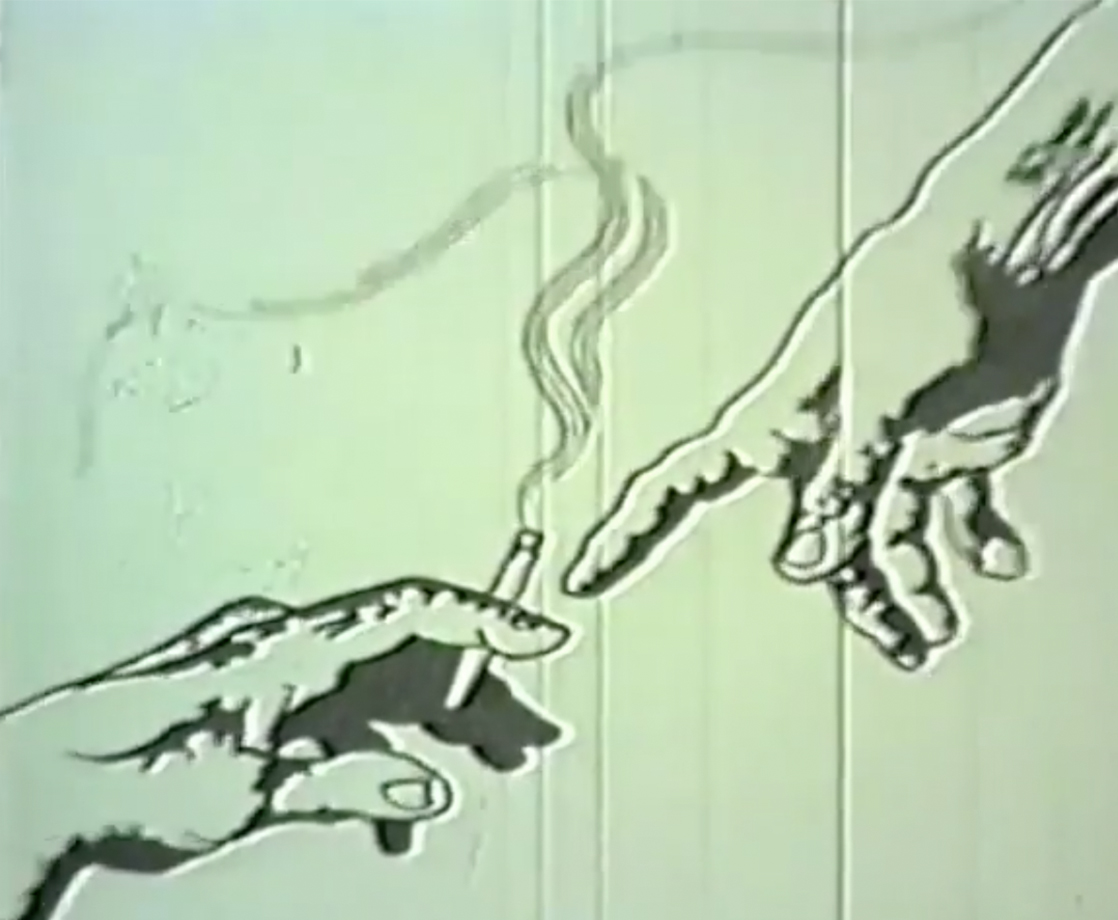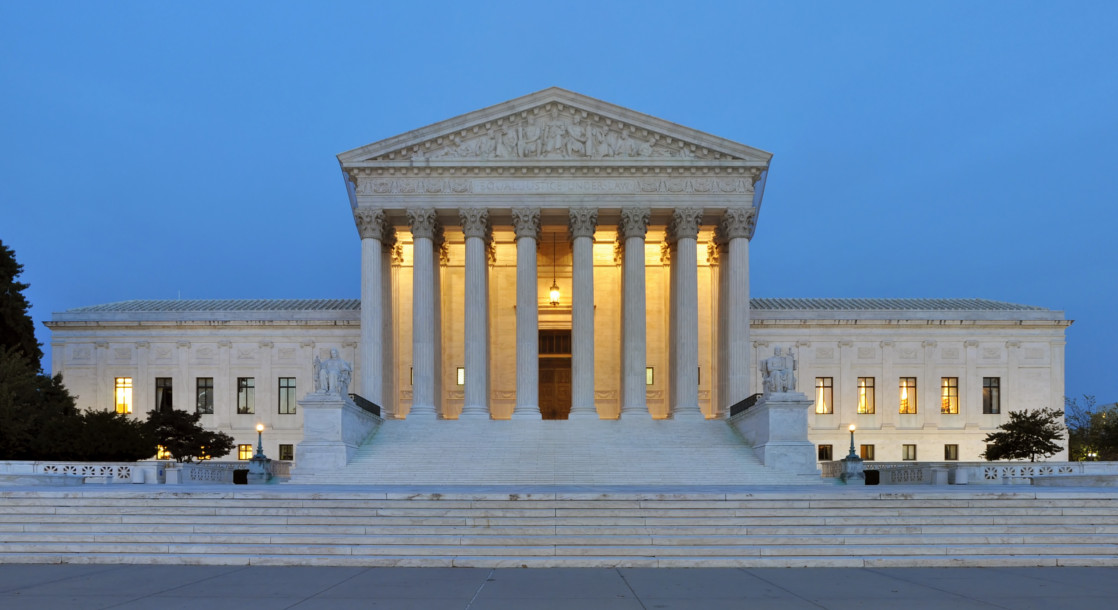Anti-drug propaganda films tend to utilize a single tactic for their single goal: flame hysteria in an effort to curb drug use. Rarely is a modicum of chill the answer, which is ironic considering it's something weed can often help you exercise. (Well, not always, as proven by a disastrous edibles experience I had before visiting the Anne Frank Memorial, but I digress…).
Whereas most propaganda films seem to be an extension of the same finger-wagging baby boomer parents are known for, 1972's The Weed is notable for being an anti-drug propaganda film that devotes just as much of its short running time to dismissing the various myths surrounding marijuana use as it does convincing you not to smoke marijuana.

Produced and directed by Brian Kellman, The Weed starts with a high school-age boy making his one phone call from prison. For reasons that remain entirely unclear, he is not wearing shoes or socks. Soon after being shuffled across the prison floor, shoeless, he begins to narrate from some unknown point in the future, presumably still without shoes. "People were looking at me like I was drunk, but I wasn't drunk, I didn't stab anybody, I didn't mug anybody. I didn't steal. And here I was, being treated like all these other people."
Charles — "but close friends call him Chuck or Charlie," a sudden voiceover interrupts to say — is 17, a star hockey player (why all these kids are always the star sportsmen of their schools I cannot say), and now behind bars. Immediately, the voice over is intercut with audio from other interviews. Whereas most PSAs feature interview subjects who more closely resemble the actors from an "As Seen On TV Commercial" — turning the confessional interview into something more akin to a radio drama — The Weeds features a rarity for this "genre": authentic interviews with real people, from psychologists and orderlies at a mental hospital, to unidentified former addicts.
As the film carries on, we get a historically well-assembled document of marijuana as a culturally valued herb. We learn of the religious significance of weed in India, and its use as a sweetener in a number of regional deserts; we hear of it being used in Africa and the Middle East in hashish form. These details serve as a nice reminder that the 1970s were a moment in which the West began to lean onto Eastern aesthetics as a means of cultural enlightenment, which puts a bad taste in your mouth when you consider it to be culture mining, but serves as nice residue in the aftermath of the 1960s.
In this way, The Weed is an interesting meeting point for the traditional documentary and propaganda film. The propaganda film aims to calcify a pre-existing notion; a documentary, even with its biases, is largely exploratory. This one in particular has an aim, of course: prevent drug use and alter the mechanisms at play that covertly push drugs on a seemingly unsuspecting youth. But even with this in mind, The Weed becomes incredulous when it notes the pendulum swing that anti-drug law has caused.
The documentary wisely notes that once upon a time, modern American medicine used strains of marijuana as a pain reliever or asthma treatment, until as recently as 1937, just four years after the end of prohibition. As a result, weed "broke out of the American ghetto," as the voice over says, with the intention of "sabotaging the American work ethic that this country had been founded on."

The Weed was made in cooperation with a number of organizations and academic departments, the most notable of which was the Botanical Museum at Harvard University, which, aside from the historical timeline, provided much of the film's counter-research on the drug's heavily-discussed negative effects. This emphasis on what is and what is not true sometimes runs against the film's best interests, but The Weed manages to do well by the standards of the genre as a vessel for the truth.
That said, the film isn't entirely unproblematic. The flippant implication that marijuana was meant to exist exclusively within "the American ghetto" is an early indicator that the War on Drugs was less about the drugs themselves, and more about the specific class of citizen the country was interested in protecting. And even though it presents it within the context of history, much of the film makes a point of presenting weed as having been brought in by some insidious other, such as in the early 1900s, when "Mexicans brought marijuana across the border, and merchant seamen introduced it to New Orleanians as an intoxicant, and its usage spreads into America's heartland by Mississippi steamboat."

While still inherently anti-drug, The Weed does manage to present marijuana as a microcosm of many contemporary problems regarding the distribution of information and malleability of facts — it may even be one of our first examples of fake news commentary. The effect of misinformation works both ways. The documentary undoes many myths surrounding marijuana's negative effect on the psyche: "We know now that marijuana does not cause insanity," the film definitively states. "It does not provoke violence; it is not addictive." But it also paints the reaction to the misinformation as an equally problematic pendulum swing. Whereas anti-drug purists tend to pin any and all examples of societal malfeasance on marijuana use — a tactic made easier through documentaries very much like this one — weed users are prone to argue the opposite almost exclusively on principle. Some feel more relative, such as when one subject argues that marijuana "makes [him] more creative," a testimony the film can't actively challenge, but presents in a manner that feels like the cinematic equivalent of a side-eye.
In other words, the film is still an inherently conservative affair. But it is also bafflingly apt at challenging preconceptions of weed's effect on users. "Sensational news stories began popping up that told of marijuana driving men mad, of young children addicted, even dead," the voice over commands. "It didn't matter that the stories weren't based on fact… people believed."

Watching propaganda films of yesteryear requires a bit of disbelief. The moral panic always feels mildly performative; the datedness of the films themselves rarely help the matter. Yet the grey area always exists in whether or not the filmmakers could recognize that they were fudging the facts. Was a tendency to conflate marijuana use with violent crime, for instance, born out of statistical fallacies or purposeful misinformation? Nostalgia renders the motivation unclear, but the misplaced hysteria is precisely what makes these films comical.
The counter-reaction, the documentary says, is often just as biased. And in some ways, The Weed is a more interesting as an examination of the conversation surrounding marijuana in the early 1970s, a moment in which marijuana had fully wedged itself within the chasm of the baby boomers and the counterculture. Throughout The Weed, the film shows a variety of clips pulled from unidentified Hollywood feature films, all with questionable depictions of what getting high is like. The clips shown are from narrative features, but they might as well be stand-ins for every propaganda film that The Weed tries to actively subvert. There are nuances within the conversation here, and the hysterics that films of this nature typically lean on — scare tactics made tantamount to a proper education — are entirely absent.
In one unidentified clip, a man manically forces a young girl to play piano faster and faster as he begins slide deep into the crevasse of his arm chair, his eyes widening and his heart palpating to the point where he is either reaching nirvana, breakdown, or seizure. Both films, The Weed and the one The Weed samples, meet at a center: they both have the same goal. But the hysterics, the film seems to be saying, do no good for anyone. Nothing spreads faster than a bad idea and, rather prophetically, The Weed seems most sure of the fact that misinformation is the deadliest drug of all.
Follow Rod on Twitter











